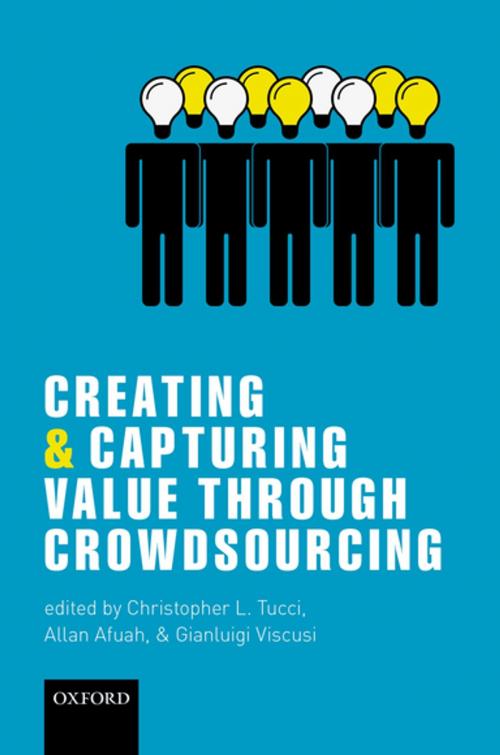Creating and Capturing Value through Crowdsourcing
Business & Finance, Industries & Professions, Industries, Nonfiction, Science & Nature, Science| Author: | ISBN: | 9780192548207 | |
| Publisher: | OUP Oxford | Publication: | March 16, 2018 |
| Imprint: | OUP Oxford | Language: | English |
| Author: | |
| ISBN: | 9780192548207 |
| Publisher: | OUP Oxford |
| Publication: | March 16, 2018 |
| Imprint: | OUP Oxford |
| Language: | English |
Examples of the value that can be created and captured through crowdsourcing go back to at least 1714 when the UK used crowdsourcing to solve the Longitude Problem, obtaining a solution that would enable the UK to become the dominant maritime force of its time. Today, Wikipedia uses crowds to provide entries for the world's largest and free encyclopedia. Partly fueled by the value that can be created and captured through crowdsourcing, interest in researching the phenomenon has been remarkable. Despite this - or perhaps because of it - research into crowdsourcing has been conducted in different research silos, within the fields of management (from strategy to finance to operations to information systems), biology, communications, computer science, economics, political science, among others. In these silos, crowdsourcing takes names such as broadcast search, innovation tournaments, crowdfunding, community innovation, distributed innovation, collective intelligence, open source, crowdpower, and even open innovation. This book aims to assemble chapters from many of these silos, since the ultimate potential of crowdsourcing research is likely to be attained only by bridging them. Chapters provide a systematic overview of the research on crowdsourcing from different fields based on a more encompassing definition of the concept, its difference for innovation, and its value for both private and public sector.
Examples of the value that can be created and captured through crowdsourcing go back to at least 1714 when the UK used crowdsourcing to solve the Longitude Problem, obtaining a solution that would enable the UK to become the dominant maritime force of its time. Today, Wikipedia uses crowds to provide entries for the world's largest and free encyclopedia. Partly fueled by the value that can be created and captured through crowdsourcing, interest in researching the phenomenon has been remarkable. Despite this - or perhaps because of it - research into crowdsourcing has been conducted in different research silos, within the fields of management (from strategy to finance to operations to information systems), biology, communications, computer science, economics, political science, among others. In these silos, crowdsourcing takes names such as broadcast search, innovation tournaments, crowdfunding, community innovation, distributed innovation, collective intelligence, open source, crowdpower, and even open innovation. This book aims to assemble chapters from many of these silos, since the ultimate potential of crowdsourcing research is likely to be attained only by bridging them. Chapters provide a systematic overview of the research on crowdsourcing from different fields based on a more encompassing definition of the concept, its difference for innovation, and its value for both private and public sector.















